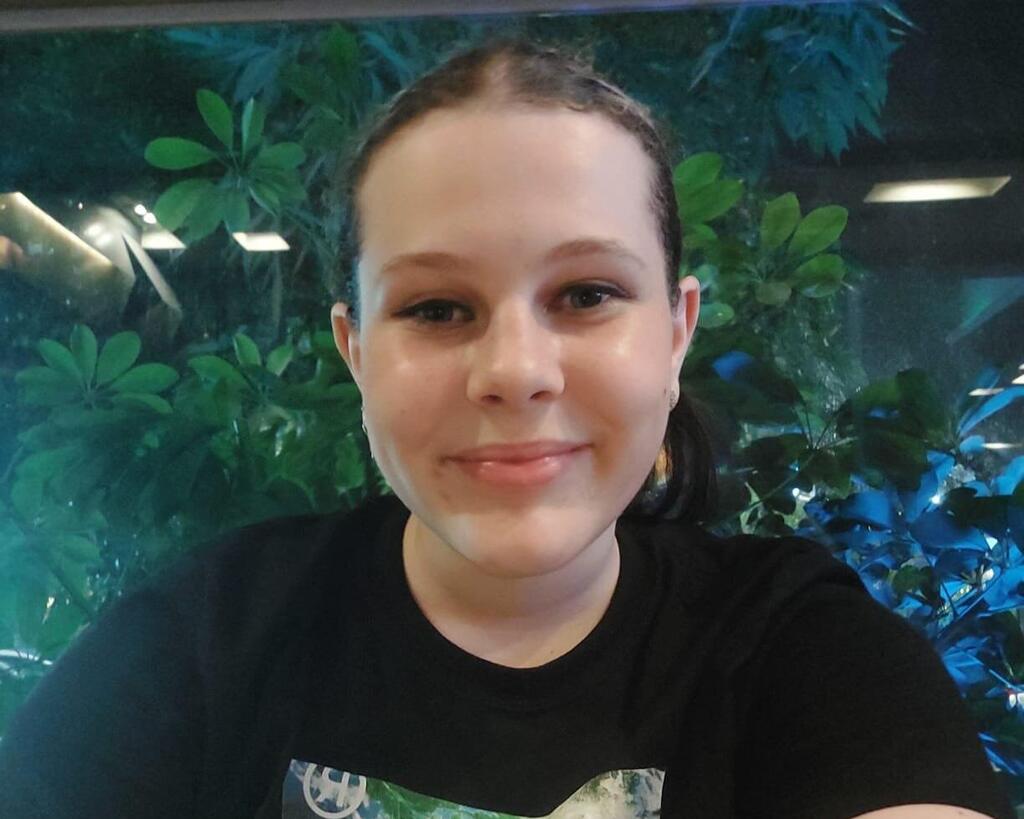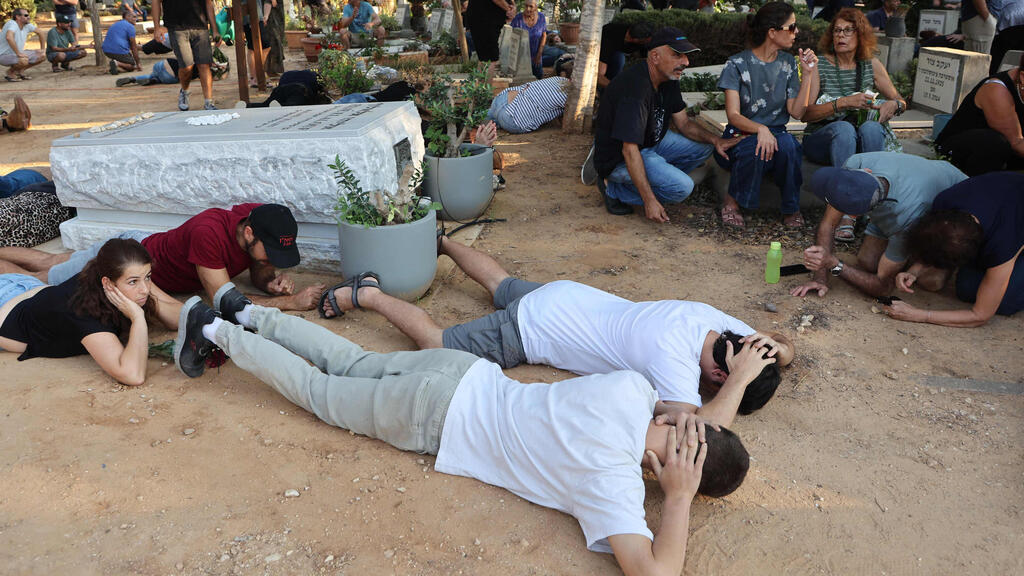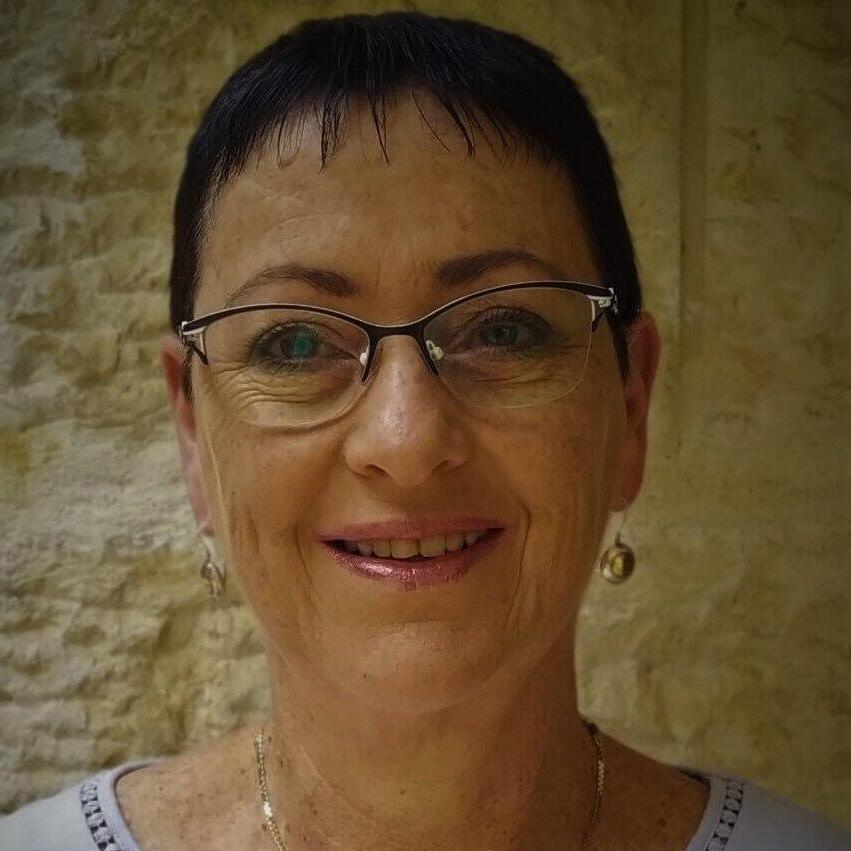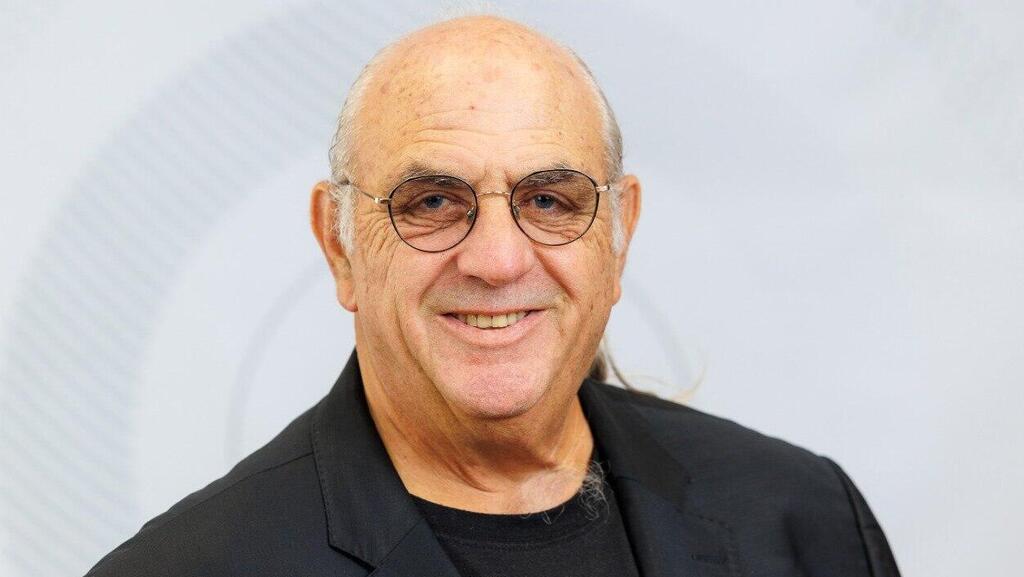Getting your Trinity Audio player ready...
The first survey by the Education Ministry since the outbreak of the war, which examined the impact of the current war on the mental state of Israeli students ages 14-18 and on their behavior patterns, indicates a dramatic increase in the proportion of students suffering from mental distress.
The findings show that 53% of the students suffer from mental and emotional distress and that 1 in 2 students in middle schools and high schools experience mental distress on a daily basis.
"It started with COVID, then there were more rounds of fighting, and then when we said 'Here, now it will be all right,' the war came. This time it caught us stronger and harder. The alarms, the fighting, the infiltration of the terrorists, the many people who were murdered and kidnapped. It had a great impact on me, I don't stop thinking about the situation," says Libby Mobarit, a 9th-grade student at the Rishon Lezion Real Gymnasium high school.
"It's not an easy time, I have friends whose family members were called up for the reserves and they were anxious," Libby continues. "I wasn't exposed to the horrifying videos, but I read stories and difficult things. Adults who saw these horrors don't sleep at night, so it's clear how children and teenagers will react to it. And there is another difficulty, which stems from the injustice of the world's attitude. We are a small country. At first, they supported us, and now even America is less supportive, and everything is teetering."
One of the ways Libby deals with the situation is by volunteering together with other youths. "Contributing to the community has always been important to me, but during the war, my desire to contribute became stronger. I volunteer in the project NOVA - Youth at the Forefront of Advocacy, and it helps me cope. At the meetings we share what we are going through and create informational videos in different languages."
5 View gallery


Libby Mobarit, a 9th-grade student at the Rishon Lezion Real Gymnasium high school
(Photo: Private collection)
The students have been experiencing continuous stress since the days of the coronavirus. In 2019, 25%t of the youth suffered from mental distress, and during the epidemic the percentages gradually climbed up to 46%. Now, it is at 53%.
In the study, conducted by Professor Yossi Harel-Fisch and Professor Sophie Walsh from the International Research Program on Adolescent Well-Being and Health at Bar-Ilan University, with funding from the Education Ministry, 600 students in grades 8-12 were examined, which constitutes a representative national sample. The survey was carried out by the iPanel research institute. The survey also found that two-thirds of students personally know someone involved in the war.
The bright spot: Increase in desire to contribute to the state
And there were also encouraging findings. Some 79% of the students feel a sense of connection to the school and 34% like it very much, compared to 67% and 21%, respectively, before the outbreak of the war. About 82% of them said that it is easy for them to talk to their parents about the issues that bother them, and for 53% it is easy to talk to the school staff. Belonging and parental support are very significant in dealing with mental and emotional distress. In addition, the war increased the desire to contribute to the country and serve in the army to 73%.
"In recent years, the education system has been dealing with prolonged periods of emergency and complex and challenging crisis situations, which have serious consequences for the mental health of Israeli students," according to Minister of Education Yoav Kisch. "These situations require the Education Ministry to invest additional resources to help the students, to support them and strengthen their personal and mental resilience."
Kisch says the Education Ministry has made the mental well-being of students and educational staff its central task, and will increase psychological services and educational counseling in order to provide therapeutic services to students and educational staff and to provide support for parents, and has implemented in educational institutions programs to teach emotional and social skills that promote resilience and reduce risky behaviors.
Dr. Chava Friedman, a national psychologist and director of the psychology department at the Education Ministry, points out that students have been under chronic stress ever since the outbreak of the coronavirus epidemic. October 7 after a mental upheaval from the coronavirus, from Operation Guardian of the Walls and because of the current social polarization.
"There are children who need a long period of quiet and protection in order to reduce stress and peace of mind, and the periods of time between crises are not enough. There is continuity in the external events that generate stress, without periods of relaxation and a decrease in the level of stress," she said.
However, she qualifies that not all children have been in a continuous abnormal situation since the coronavirus, and that there are children who recover naturally compared to others who need focused, continuous and long-term intervention.
Einav Lok, director of the psychological advisory service at the Education Ministry, adds that "the exposure to the difficult videos and the security threat that the adults are also experiencing creates a common trauma. The experience of the adults is critical to the sense of protection and resilience of the children."
Harel-Fisch, one of the authors of the study, says: "Those who were directly or indirectly exposed to the horrors of war are at immediate risk. Our role as a society is to provide them with direct assistance so that the trauma does not become permanent. Parents have an acute role in directing children's viewing patterns of difficult content, and in dealing with the impact of such observation on their mental and functional state."
Yaniv Waizman, youth expert and lecturer in youth studies: "The youth are at the forefront, but the damage to them is sometimes not felt by the adults and it seems that they are the first to return to normality. In practice, they are the champions of suppression and almost always their answer will be 'everything is fine' while most of the time 'everything is really not okay' is the real answer. You just need to know how to ask it."






